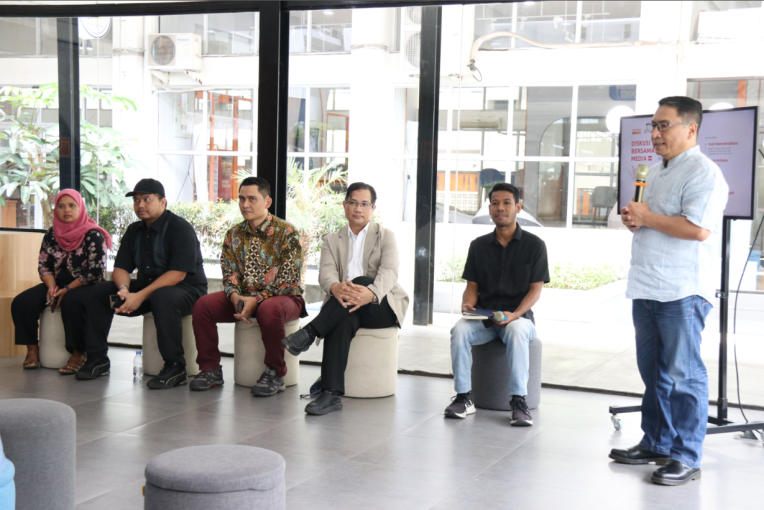
Yogyakarta, February 23rd 2024─The holding of the general election two weeks ago does not mean that people can let their guard down. The post-election moments are the right momentum to reflect and re-evaluate the 2024 elections. As a forum to jointly reflect on the election process, Election Corner held its fourth Joint Media Discussion event with the title “A Week After the Election: Quo Vadis Demokrasi Indonesia?” on Friday (23/2) at Amphitheater BRI Work Room, Fisipol UGM.
According to Arya Budi, a lecturer at the Department of Politics and Government (DPP) UGM, there is a phenomenon that is an anomaly in the 2024 elections. Based on the temporary results of quick counts conducted by various survey institutions, the Prabowo-Gibran candidate pair is leading with more than 50% of the votes. Meanwhile, the party that supports Prabowo-Gibran is not leading in the quick count. “Empirically, this has never happened. Theoretically, this is also an anomaly because in general, if the presidential candidate is high, the supporting party will also be lifted,” Arya explained.
Arya suspects that there are two things that can explain the phenomenon of the non-linearity of the votes of presidential candidates and their parties. “The existence of vote buying and clientelistic behavior which is quite massive will deviate voter affection. Then, related to the open proportional electoral system, voters of legislative candidates dominate the proportion of party voters as much as 75% in 2019. The party’s vote contribution comes from the candidate voters. This could have deviated the anomaly earlier,” said Arya.
Furthermore, Arya also explained how the distribution of social assistance by President Jokowi during the 2024 Election campaign period showed the high effectiveness of clientelism in Indonesia. According to Arya, more than half of the voters in the 2024 elections are vulnerable to clientelistic mechanisms. This group includes voters with an income of no more than 2 million rupiah per month. “This explains why social assistance is an important variable because it determines whether tomorrow or next week they can eat or not,” said Arya.
In line with Arya, Devy Dhian Cahyati, a lecturer at DPP UGM, agreed that the social assistance program was the dominant factor in people choosing the Prabowo-Gibran candidate. “People prefer to vote for candidates who offer solutions that will directly affect the community. For the lower middle class, this is very contributive to their daily lives and opens access to nutrition,” said Devy.
